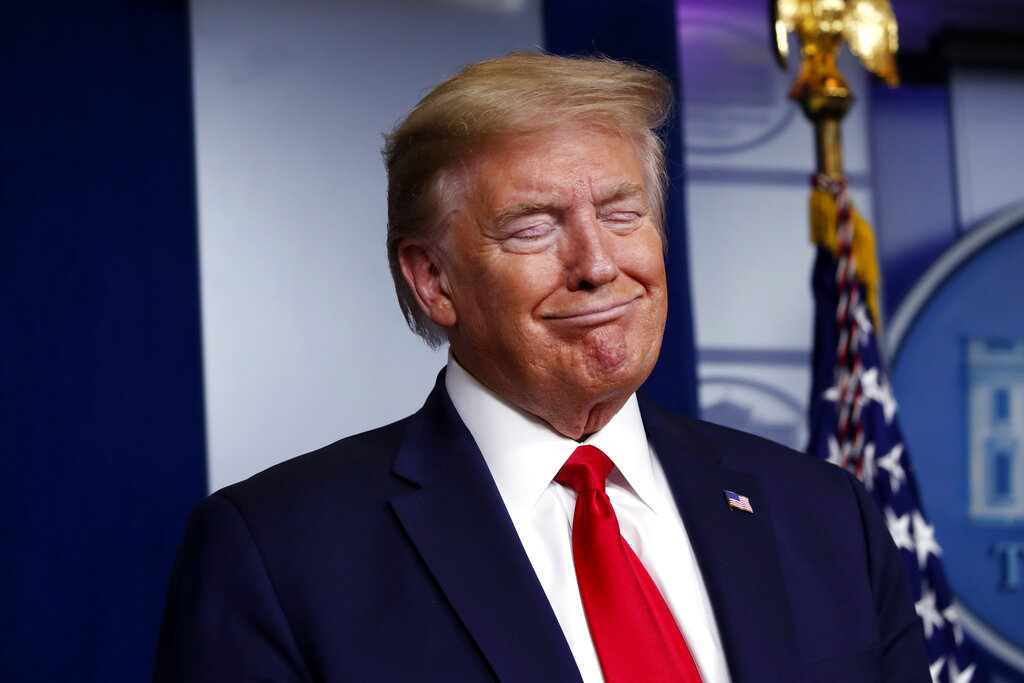The doctor who led the federal agency involved in developing a coronavirus vaccine said on Wednesday that he was removed from his post after he pressed for rigorous vetting of hydroxychloroquine, an anti-malaria drug embraced by President Trump as a coronavirus treatment, and that the administration has put “politics and cronyism ahead of science.”
Dr Rick Bright was abruptly dismissed this week as the director of the department of health and human services’ biomedical advanced research and development authority, or Barda, and removed as the deputy assistant secretary for preparedness and response. He was given a narrower job at the National Institutes of Health.
In a scorching statement, Dr Bright assailed the leadership at the health department, saying he was pressured to direct money towards hydroxychloroquine, one of several “potentially dangerous drugs promoted by those with political connections” and repeatedly described by the President as a potential “game changer” in the fight against the virus.
“I believe this transfer was in response to my insistence that the government invest the billions of dollars allocated by Congress to address the Covid-19 pandemic into safe and scientifically vetted solutions, and not in drugs, vaccines and other technologies that lack scientific merit,” he said in his statement. “I am speaking out because to combat this deadly virus, science — not politics or cronyism — has to lead the way.”
President Trump has pushed a malaria drug, hydroxychloroquine, as a treatment for coronavirus patients. A recent study found that patients taking it had higher death rates compared with those who did not.
Doubts about the use of hydroxychloroquine as a treatment for the coronavirus and the lack of evidence about the drug’s effectiveness — including some small studies that indicated patients could be harmed — appear to have dampened Trump’s enthusiasm for it.
But as the seriousness of the pandemic became clear in mid-March, the President seized on anecdotal reports about victims of the coronavirus who recovered quickly after using the drug. Desperate for good news as he watched the death toll climb and the stock market plummet, Trump could hardly contain his excitement.
In a post on Twitter on March 21, the President urged federal officials to quickly approve the use of hydroxychloroquine with an antibiotic called azithromycin — a combination that he believed could work on the coronavirus.
By then, Trump’s favourite Fox News hosts were echoing his optimism that hydroxychloroquine could be a magic bullet against the virus. A day after meeting in the Oval Office with Laura Ingraham and two doctors promoting the drug as a cure-all, Trump promoted it from the White House briefing room.
“I’ll say it again: What do you have to lose?” Trump said on April 4, carefully pronouncing the drug, hydroxychloroquine. His presidential prescription: “Take it.”
Trials, however, suggested the drug might not be as effective as the president hoped. In mid-April, a small trial in Brazil was halted after some patients developed irregular heart rates.
Then a study this week of 368 Veterans Affairs patients, which has not been peer-reviewed, found that it did not help patients avoid the need for ventilators, and that the use of the drug alone was associated with an increased risk of death.
And this week, a panel of the government’s own experts at the National Institute of Allergy and Infectious Diseases said there was “insufficient data” to recommend taking it to treat symptoms from the virus.
The President no longer talks much about hydroxychloroquine. Asked at his daily briefing if Dr Bright had been forced out because he challenged the President’s support for an unproven drug, Trump said, “Maybe he was and maybe he wasn’t; I don’t know who he is.”
Warren brother dead
Former Democratic presidential candidate Elizabeth Warren's oldest brother, Donald Reed Herring, died on Tuesday night after contracting the novel coronavirus, she confirmed on Thursday.
Herring, 86, known as Don Reed, was an Air Force pilot who flew hundreds of combat missions in Vietnam.
“He was charming and funny, a natural leader,” Warren, a US senator from Massachusetts, wrote on Twitter. “What made him extra special was his smile”quick and crooked, it always seemed to generate its own light.”











